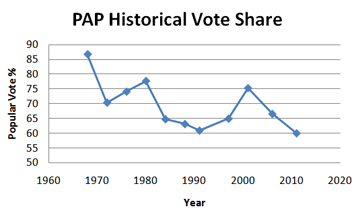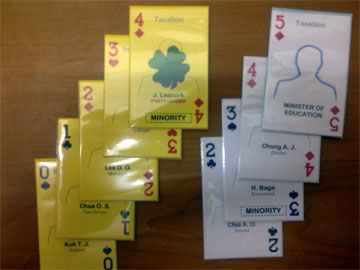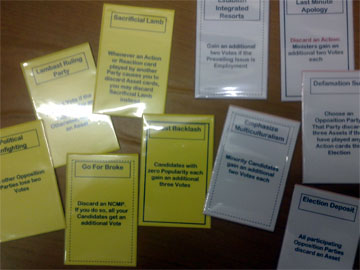|
| |
|
| |
|
|







|
|
TCHS 4O 2000 [4o's nonsense] alvinny [2] - csq - edchong jenming - joseph - law meepok - mingqi - pea pengkian [2] - qwergopot - woof xinghao - zhengyu HCJC 01S60 [understated sixzero] andy - edwin - jack jiaqi - peter - rex serena SAF 21SA khenghui - jiaming - jinrui [2] ritchie - vicknesh - zhenhao Others Lwei [2] - shaowei - website links - Alien Loves Predator BloggerSG Cute Overload! Cyanide and Happiness Daily Bunny Hamleto Hattrick Magic: The Gathering The Onion The Order of the Stick Perry Bible Fellowship PvP Online Soccernet Sluggy Freelance The Students' Sketchpad Talk Rock Talking Cock.com Tom the Dancing Bug Wikipedia Wulffmorgenthaler |
|
bert's blog v1.21 Powered by glolg Programmed with Perl 5.6.1 on Apache/1.3.27 (Red Hat Linux) best viewed at 1024 x 768 resolution on Internet Explorer 6.0+ or Mozilla Firefox 1.5+ entry views: 1926 today's page views: 681 (118 mobile) all-time page views: 3400666 most viewed entry: 18739 views most commented entry: 14 comments number of entries: 1228 page created Sat Jul 12, 2025 23:26:42 |
|
- tagcloud - academics [70] art [8] changelog [49] current events [36] cute stuff [12] gaming [11] music [8] outings [16] philosophy [10] poetry [4] programming [15] rants [5] reviews [8] sport [37] travel [19] work [3] miscellaneous [75] |
|
- category tags - academics art changelog current events cute stuff gaming miscellaneous music outings philosophy poetry programming rants reviews sport travel work tags in total: 386 |

| ||
|
It's been a shitty weekend, with United being completely outclassed in the Champions League final, and Mr. Ham J. D. Burger passing away the morning after, following a couple of days with respiratory problems. Had he been well enough to be squeezed, everything might have turned out ok. The main part of this post will however be made up of some observations about the recent elections, just as the topic becomes passe. One thing the elections have led me to notice, through some discussions on Facebook that I was not able to resist, was that my style of participation is not especially amenable to building friendships. A pattern that I found among Facebook conversations (especially on quasi-serious topics) is that they are generally made up of commentators who agree with the topic starter's stand, and if they do not simply repeat or restate the initial points, tend to bring in very similar ones. These commentators, whom I term Type A, tend heavily towards supporting their buddies, and it is incredibly rare to find them voicing out any dissent - presumably they either happen to be of one mind on virtually any item of debate, or just keep quiet whenever they do not agree. This applies to both pro-PAP and pro-Opposition supporters. Unfortunately, my nature (let us call it Type B) happens to be the opposite. I mostly keep quiet when in agreement, since comprehensive reasons for that stand have usually already been given, and only leap in when I have objections. This can lead to the perception that I am against a person, when I actually (silently) support 90% of his statements. While this may be efficient in exploring issues thoroughly, it is not exactly the best way to build rapport. Despite this knowledge, I haven't yet been able to push myself to posting what basically amounts to "yes" messages. Worse, I routinely do this to both factions, which doesn't do anything for me as far as trust and popularity goes. Intellectually, robust argument is great, since it should converge to right answers. Practically, it seldom works out, often over unprovable premises that are stubbornly held to. Machiavelli said it best when he explained why always to pick a side, any side; nobody likes a reasonable milksop who prefers to remember that almost all people have basically the same values and motivations, when seen from a distant enough viewpoint (99.9% of our DNA is the same, after all). Having said that, how have the parties done after the fact? 60.1% The PAP's share of the vote dropped 6.5% to a historic low, which, it must be remembered, is still a very healthy total in just about any democracy. It is however still a quite significant fall, which hopefully did not come as a complete surprise to the ruling party, who were concentrating on their usual task of "doing the right thing" and not being "populist", which may be the second-dirtiest political word after "welfare" here. Their basic ethos has been, we get the best people, craft and implement the best plans, everybody obediently follows and allows dissent to be mercilessly stamped out, and we divvy up the big pie that follows. This plan has worked for several decades, but crucially, it was sold to a generation that had next to no pie, and was overjoyed to see their pies grow steadily. As that all-important end of the bargain was held up, the citizenry worked hard, and overlooked many smaller unpleasantries. We have however come, as many developed countries have, to a point where the n00b pie gains are over. The deep appreciation that came with raising a guy from an attap hut to a brick-walled flat can no longer be engendered - our new blood is increasingly looking at going from one flat to a smaller and more expensive one (but hey, it has a nicer paint scheme!). The old contract has run its course. Of course, it must be said that there was little that any government could have done about this general trend. Economies mature, and high growth rates cannot be maintained indefinitely. It can be said that the PAP has become a victim of its own success. With little prospect of extending the pie offer, the PAP has to be given credit for its swift attempt at reinvention. Outgoing Foreign Minister George Yeo, who had a blameless record but was unfortunate enough to be plonked in the wrong place at the wrong time, recognized that need, though it wasn't enough for him to save his seat. Two titans of Singapore politics retired from the Cabinet, along with three Ministers who had fouled up, but who just happened to have intended to retire all along (hmm). Yet more was to come, as they put their own salaries, always a gripe among the general public, under review. It will be interesting to see how this impacts on the payscale of the Civil Service. A GRC At Last Where one party loses, others must gain, and this time the Workers' Party was the big winner. But why did they succeed where the rest failed? The issues raised by the Opposition have been covered here, but looking at the overlap, that cannot be the main factor. I would chalk their achievement up to several points:
And where does everyone go from here? "Go east, young man" would appear to be the obvious grand strategy for the opposition, with the entire slab, barring Ang Mo Kio, looking relatively vulnerable. But might they be able to press the advantage? The Workers' Party remains associated with the Chinese lower-income segment, as indicated by its very name, although election coverage hints that it has some support from other races. The SDP seems to have cleaned up its image somewhat, being the largest gainer in relative terms, but is still geared towards English-educated upper-and-middle class liberals, with a primary focus that many locals could care less about. One might think that some alliance between the two, and perhaps also the NSP (who to me, with the exception of the eponymous Nicole Seah, is somewhat lacking in direction and character despite its size - refer to its mission statement and objectives), would produce a party of sufficient heft and reach to offer a plausible alternative to the PAP, this sort of thing has been tried with little success. Everyone wants to be chief, after all, as evidenced by a resignation over a mere NCMP seat. While pooling resources and compromising to generate a clear platform would be the surest path to effecting real change, I don't see it happening. Heck, the story of the Opposition in Singapore has mostly been one of splintering and back-biting. I don't see too much in the Reform Party for now (its website didn't even work in Chrome), and the SPP is, and always has, been about Mr. Chiam See Tong, whose poor health naturally cost the party dearly in its ill-fated attempt to take Bishan-Toa Payoh. His influence can be seen from the fact that his wife, who is about as much a politician as I am a hamster, nearly defending Potong Pasir. Local politics being heavily personality-based as it is, the SPP's future after Mr. Chiam leaves the scene is in doubt. The Opposition at least had enough sense to avoid three-cornered fights wherever possible, with the only exception, in Punggol East, ending in a slightly embarassing (and quite costly) 4.45% haul for one of the two Opposition candidates. It must be recognized that probably about 20% to 30% of the citizenry will vote Opposition, as long as they field a passably-human representative; in a one-on-one fight, I daresay even my recently deceased (and dearly missed) hamster would gain the 12.5% required to not lose its deposit. This is because a significant proportion of the votes are not so much for the Opposition party that happens to contest (though sympathy for the underdog, and helping them to get back their deposit, are common motivations), but against the PAP. The Opposition has traditionally admitted that it was unready to form the Government, having used the strategy of conceding a majority to the PAP on Nomination Day to entice voters to support them without fear of an upset (which, it has to be said, was always unlikely). This had the downside of freeing heavyweights to help out in constituencies that were contested, and moreover made Polling Day boring for very many citizens. Contesting all available seats is probably the right way forward for the men-not-in-white. And what can the PAP do? New Politics Playing pundit is meaningless without sticking one's neck out with some predictions, and I'll lay mine out:
 60+% isn't that low (Source: Wikipedia) On Point One: This seems a pretty safe prediction, given that the PAP has only managed to get more than 67% of the popular vote once in the seven most recent general elections (all the way back to 1984), though these statistics should be taken with a grain of salt, since only a minority of the population was able to vote for many of these. Additionally, demographics are against them. The elderly, who as a whole are staunch supporters, having enjoyed a standard of living that they dared not hope for, for which a large part of the credit must be given to the PAP, can only decrease in number. The younger generation is not quite as appreciative, but they cannot be expected to be. A common conspiracy theory is that new immigrants from less-developed countries have been sought as a counterweight, although they fit neither the profile of temporary manual labourer or high-profile foreign talent and instead compete directly with young professionals. This could well have an effect, but a key problem is that educated immigrants tend towards the liberal, at least on political issues (we might recall Warwick's snub back in 2005, over concerns of academic freedom; fortunately for me, computer science is mostly neutral on worldly matters). One might imagine a very clever and diverse populace willing to swallow de-facto one-party rule wholesale, with its associated shenanigans like having an Elections Commission controlled by the party... sorry, ain't happening. [N.B. One statement made by our Law and Home Affairs Minister prior to the elections had me scratching my head - he accused the Workers' Party of wanting to block constitutional amendments, like that is a bad thing! What is the value of a Constitution (definition: a set of fundamental principles), it if can be changed at will (e.g. the GRC scheme)?] Rich people untainted by too much education lean conservative, in contrast, so selling Singapore as a financial hub and targeting already-high-net-wealth individuals seems a safer bet for the PAP. Whether decreasing income and estate taxes can be seen as an indication of this happening, is up for debate. On Point Two: Why 58%? Well, as the share of the popular vote drops towards 50%, the number of seats won tends to fall increasingly quickly, even taking gentle gerrymandering into account. With a 50% share of the popular vote, for example, it is very hard to construct a scenario where the party can take more than about 60% of the seats without egregious abuse of the system, given that Singapore remains quite homogeneous politically (despite a slight East-West bias). It is obvious that the Opposition is in no position to take over the reins, and Singaporeans being quite a pragmatic people, I doubt that they would want a botched transfer. Here, I might add that very few people appear to vote purely based on the performance of their MPs, as the election is ostensibly about; zeitgeist seems to be a significant consideration, which the Workers' Party rode to their advantage in taking Aljunied. I would put 55% of the popular vote as the level at which alarm bells would really start to ring. Anything below that signals potentially imminent upheaval, which may however not benefit the Opposition if they are unprepared for it. On Point Three, I refer to the (fictional) discipline of psychohistory. When its founder, Hari Seldon, was asked by his Emperor to predict the chances that he would die by assassination, he gave the figure of 50%. When pressed, Seldon explained that about 50% of all the Emperors before him had been murdered, and there was actually very little any particular Emperor could have done about it, even if he were aware of the fact; for example, dismissing a guard could lead to a revenge attack, while increasing the security detail might lend courage to his enemies. Returning to the real world, there have been few, if any, political parties that have managed to preserve what is effectively a one-party state for more than a few decades, assuming that it actually operates democratically (which the PAP, despite its detractors, mostly does) in the commonly-understood sense of the word (so examples like the Chinese Communist Party and its ilk don't count). Perhaps we will prove to be an exception, but exceptions are rare by definition. Bored Game  The tongue-in-cheek card game of politics, strategy and political strategy With all the excitement, I couldn't resist getting into the act, and created a card game (of some 673 cards), representing the elections of a completely fictional small country. It is essentially a closed-bidding game, in which a dominant Party In Power (PIP) aims to win all (or almost all) the Constituencies with their superior candidates. Opposition parties can bide their time and attempt to assemble a strong team over multiple draws and mount a serious challenge, or contest as many elections as possible using a scattergun approach, aiming to collect NCMPs by being the best-performing opposition party. Intra-opposition dynamics are important - do they bluff and try to spread the forces of the PIP, or do they selfishly look after their own interests (and generally get picked off)? Do they bicker over the Prevailing Issue, or do they play to their own strengths?  Box with cards  Rulesheets Suits correspond to the Favoured Issue of the candidates:  Candidate cards The most fun part probably comes from the usage of Action (for the PIP) and Reaction (for the opposition) cards. Who is the right target to slap a Defamation Suit on, and is it worth countering it with a Sacrificial Lamb (usually yes)? Establish Integrated Resorts when your constituents are concerned about employment, but don't get too uppity, or you may face an Elitist Backlash - but even then, a Last Minute Apology may save the day...  Action & Reaction Features 34 different Action cards and 48 different Reaction cards, in three rarities! Next: Image Concerns
anonymous said... ever thought of reaching out to a larger audience with your creations? http://www.forumwarz.com/discussions/view/48052-a-p-sad-day?page=1
Mr. Fish F. Chips said... nope, no market up here
|
||||||||||||
 Copyright © 2006-2025 GLYS. All Rights Reserved. |
||||||||||||